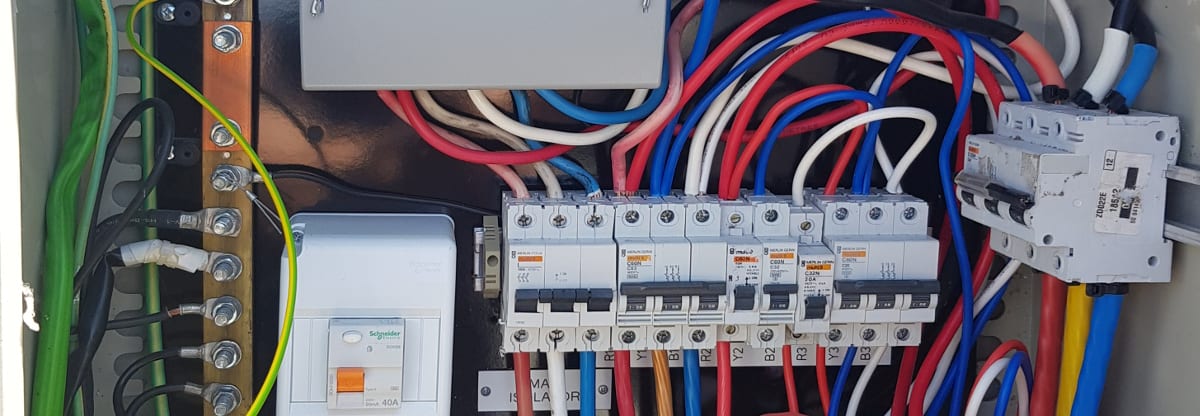What is an RCD?
An RCD, or residual current device, is an electrical life-saving device which is designed to prevent you from getting a fatal electric shock if you touch something live, such as a bare wire. It can also provide some protection against electrical fires. RCDs offer a level of personal protection that ordinary fuses and circuit-breakers cannot provide.
What does an RCD do?
An RCD is a sensitive safety device that switches off electricity automatically if there is a fault. An RCD is designed to protect against the risks of electrocution and fire caused by earth faults. For example, if you cut through the cable when mowing the lawn and accidentally touched the exposed live wires or a faulty appliance overheats causing electric current to flow to earth.
How does it work?
An RCD constantly monitors the electric current flowing through one or more circuits it is used to protect. If it detects electricity flowing down an unintended path, such as through a person who has touched a live part, the RCD will switch the circuit off very quickly, significantly reducing the risk of death or serious injury. The two common milli-amp ratings on RCDs are 30mA and 10mA.
30mA – Used in general domestic and commercial instances. This level of protection should trip the RCD before defibrillation of the heart can occur.
10mA – Used in Medical areas and areas with young children present such as schools and daycares. This level of protection should trip before muscle contraction can occur
What are the main types of RCD?
RCDs can help protect you from electric shock in potentially dangerous areas like bathrooms and gardens, and there are various types of RCDs that can be used to make sure you are always as safe as possible.
Fixed RCDs
These are installed in the switchboard and can provide protection to individual or groups of circuits. A fixed RCD provides the highest level of protection as it protects all the wiring and the sockets on a circuit, and any connected appliances.
Socket-Outlet RCDs
These are special socket-outlets with an RCD built into them which can be used in place of a standard socket-outlet. This type of RCD provides protection only to the person in contact with equipment, including its lead, plugged into the special socket-outlet. You can usually find these in the bathrooms of older houses where they do not have an RCD at the switchboard.
Portable RCDs
These plug into any standard socket-outlet. An appliance can then be plugged into the RCD. They are useful when neither fixed nor socket-outlet RCDs are available but, as with socket-outlet RCDs, they provide protection only to the person in contact with the equipment, including its lead, plugged into the portable RCD.
How much will RCD protection cost?
A plug-in RCD can cost as little as $24, Portable RCDs around $50 and fixed RCDs will cost more, but will provide a greater degree of protection to help keep your family safe. Installation costs will vary, so we recommend getting several quotes before proceeding.
How do I check whether I already have fixed RCD protection?
To check if you have fixed RCD protection, go to your switchboard and have a look to see if there is a device with a pushbutton marked ‘T’ or ‘Test’. This ‘test’ button is part of an RCD.
Don’t forget to test – You should test all fixed and socket RCDs about every three months. Manufacturers recommend that portable RCDs are tested every time you use them.
Beware – If you hold the test button in for a long time and the RCD does not switch off the electricity supply, then get advice from a registered electrician.
As with everything electrical If you have any questions or concerns about an RCD or would like to enquire about seeing if you need to install one to better protect you and your property, call Lite Energy today on 0800 LITE NRG (548 3674)
If you have an electrical maintenance issue, a renovation project or just want to find out more about how we can help you – don’t hesitate to give us a call, send us an email or fill in the form below. We’ll get back to you without delay.




